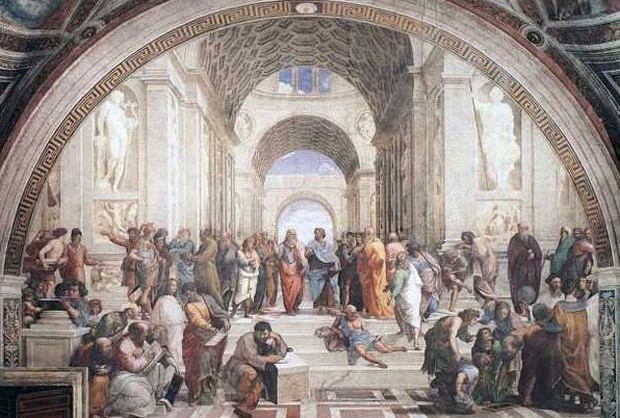According to Greek mythology Europe was a Phoenician princess abducted by the the Greek god Zeus, after transforming himself into a magnificent white bull. He then took the princess to the island of Crete, where she gave birth to a number of other mythological figures. The word Europe itself is Greek. As the future of Greece within Europe is under doubt, US news network CNN underlines the linguistic and cultural significance of Greece’s place in Europe by outlining some Greek words adopted in the English language that are tied in to the current crisis.
1. Democracy
Greece is the cradle of western civilisation and Athens was the city state to institute a system of governing called democracy. It means the holding of power by the people through voting. All 28 EU member states must have democracies to be allowed admission into the European Union.
2. Politics
Greek philosopher Aristotle spoke first about Politics. It is the science of governing citizens and derives from the Greek word ‘polis’ meaning city or community. The European structure has a some supranational institutions (EU, ECB, EC, CoE) that have a say in a wide number of EU member-state’s internal affairs, but does not have total political control of the countries belonging to these institutions.
3. Phobia
It is a Greek word meaning an inexplicable fear of an object or a situation. It means fear. This fear is pervasive across the globe of what a Grexit would mean, not only to Greece as a country but also to the rest of the EU structure and the global market.
4. Ethics
It is another Greek word and branch in philosophy that tries to explain morality, right and wrong. It originates from the Greek word Ethos. Plato and Socrates were those great philosophers who explored these ideas and how they affect humans. When good ethics are missing, there is room for corruption. According to transparency.org, Germany was in the top 20 last year, while Greece ranked 69 on the list of good practices.
These words have had a profound impact throughout our history and still do. Compromise, however, although not being of Greek origin, is what all parties should be seeking, so that we can put ‘phobia’ to rest….

































